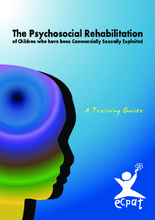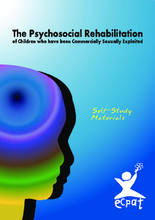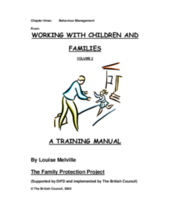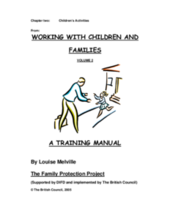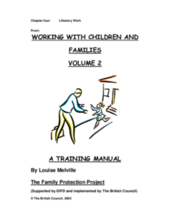Displaying 13951 - 13960 of 14551
This report presents an overview of the Millennium Development Goals and ‘A World Fit for Children’ commitments, the situation of children in the Islamic world, and the constraints and challenges facing children in the region in regards to health, education, poverty, child protection, and HIV/AIDS. The report asks “are we fulfilling our commitment to children?”
This report presents the survey Kevin Browne and colleagues conducted in 33 European countries to identify the number and characteristics of children less than three placed in residential care without their parents for more than three months during the year ending December 31, 2003. The purpose was to assess the rate and cost of residential care as a response to children in adversity.
Examines the use of cash and vouchers to provide people with assistance in emergency situations
Guidance on preventing child separation, interviewing separated children, and programming for their care and protection needs. Contains specific information on temporary and longer term care options.
A resource pack for training caregivers of children who have been commercially sexually exploited. It includes 12 units to develop knowledge and practical skills of caregivers in areas such as child sexual abuse, commercial sexual exploitation, special and psychosocial needs, behavior management, health promotion, life and social skills, education and vocational training, communication and therapeutic skills, and rehabilitation.
A self-study manual on the care, protection and psychosocial rehabilitation of commercially sexually exploited children.
Guidance for caregivers and residential staff in Jordan on how to assess behavior problems in children and to manage them positively.
Guidance and examples of group activities which promote development and self-esteem, and the role of the worker in providing activities on a regular basis.
Practitioner guidance on communicating and recording children’s care history in order to increase their understanding of what happened to them and to help prepare children for moves
A child friendly assessment form for children/young people who are caregivers. The assessment helps them to identify what support services they may need.




